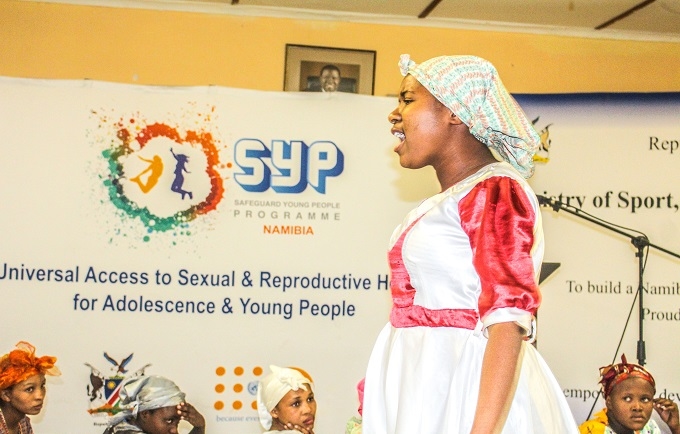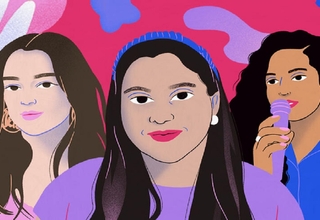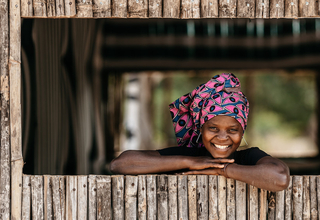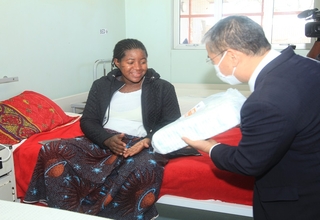WINDHOEK, Namibia – The #MeTooNamibia movement, a coalition of human rights organisations and activists across the country that will offer support to the survivors of sexual and gender-based violence, was launched at a press conference on 6 May 2019 in the capital.
The birth of #MeTooNamibia comes in the wake of an avalanche of sexual violence, harassment, abuse and assault revelations coming to light over the past week.
#MeTooNamibia aims to create safe spaces for survivors by offering them legal assistance, psycho-social support and platforms of anonymity where they can speak out, without fear of retribution or shame. It is envisioned that through these processes, a comprehensive support system will be created that will allow healing to take place.
About 200 survivors have reached out for assistance since last week when the revelations started on social media.
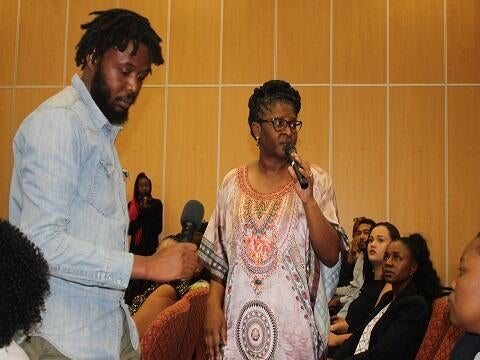
the media at the launch of #MeTooNamibia. @UNFPA Namibia/Imaan Esse
Speaking at the launch, the United Nations Population Fund (UNFPA) Namibia Assistant Representative, Ms. Loide Amkongo, hailed the #MeTooNamibia as a powerful platform to revitalize action for gender equality.
“Today Namibia is on the global map for speaking out and promoting the rights of our girls and young women, today it is important that we not only give support but we provide support so girls and young women are given opportunities to speak out,” she said, adding: “We have vulnerable groups, persons with disabilities and indigenous people who also need to be reached with information so that they too can speak out and seek services. It is important that we provide the necessary support as part of this alliance to ensure that everyone's voice is heard so that no one is left out.”
The #MeTooNamibia movement alliance consists of the Office of the First Lady, Regain Trust, The Namibian Women Lawyers Association, Sister Namibia, Lifeline/Childline, Nixon Marcus Public Law Firm, Bel Esprit Private Mental Hospital, Slut Shame Walk, Legal Assistance Center, Namibia Coalition against Gender-Based Violence, and many others.
These brave young women now have social media platforms where they are able to freely articulate their opinions.
The First Lady First of the Republic of Namibia, Madam Monica Geingos, said the #MeTooNamibia movement is being driven by a “different generation of young women who do not accept what we accepted back then”.
“These brave young women now have social media platforms where they are able to freely articulate their opinions,” said the First Lady.
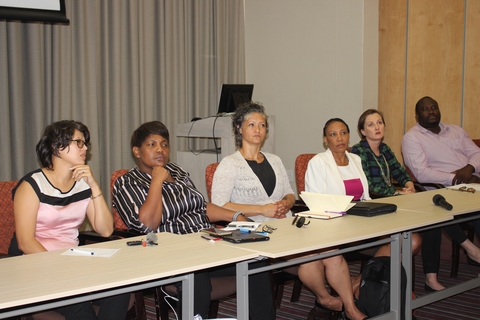
Some of the members of the #MeTooNamibia coalition.
@UNFPA Namibia/Imaan Esse
Ms. Alna Dall, founder of #MeTooNamibia, said it is important to clarify that the movement is not a battle of the sexes, it is not like women are being put against men but men are encouraged to support the movement and to “collectively agree to do better for the benefit of all Namibians.”
“A floodgate has opened and our first response is to ask “why?”, “why this, and why now?” The Why now is the easiest to answer. We live in a new era of empowerment. Social media has given the survivors of sexual violence an opportunity to seek safety in numbers. For the first time in history, we can encourage one another to put aside the shame, to ignore the stigma surrounding sexual violence, and to speak out. Women have found an insurmountable form of courage and some of them have been brave enough to name their perpetrators,” said Dall.
It is important that the alleged perpetrators are held accountable; that they know that we will no longer sit and stand by quietly while they continue to hurt and ruin lives.
“Sexual violence is not only a women’s issue. It is ultimately the national issue because we must make efforts to protect each other from the persistent threats of sexual violence,” said Arlana Shikongo of the Slut Shame Walk organising committee.
“It is important that the alleged perpetrators are held accountable; that they know that we will no longer sit and stand by quietly while they continue to hurt and ruin lives,” she stated.
Originally, the #MeToo movement was started in the United States in 2006 by activist Tarana Burke and has since grown into an international movement, reaching nearly every region of the world.
Gender-based violence is a profound and widespread problem in Namibia, impacting on almost every aspect of life. One in three or 32% of women have experienced physical violence since age 15 and this figure is high in Omaheke Region 42%, followed by Kunene 36% and Zambezi 27% respectively. Adolescent girls remain at high risk of violence, exploitation and persistent harmful practices with numerous unreported and investigated cases.
